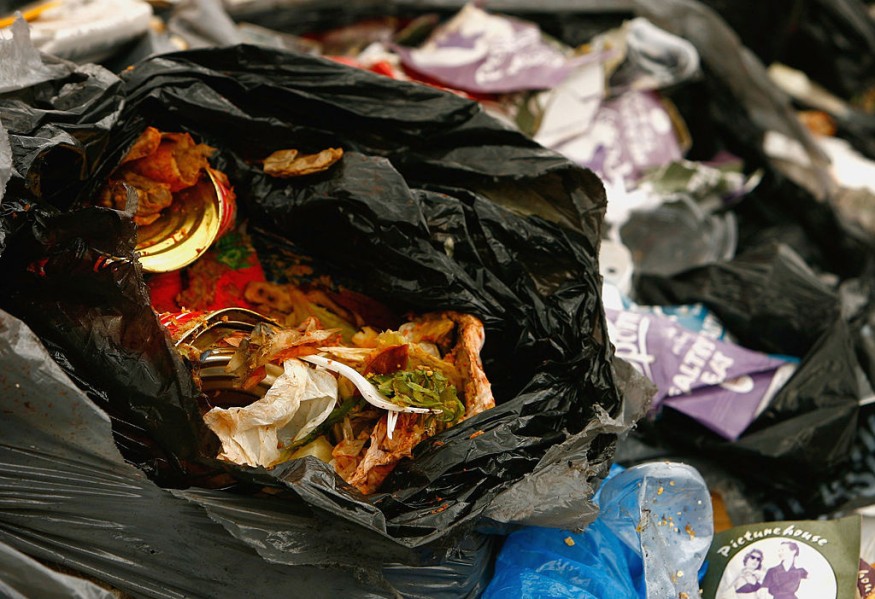According to a new scientific analysis, environmental pollution is outpacing the worldwide obesity epidemic.
The theory that toxins are known as "obesogens" might alter how the body regulates weight is not yet widely accepted. However, the review's hundreds of scientists contend that the evidence is now so solid that it should be.

The most alarming component of the findings is that some chemical effects that cause weight gain can be handed down through generations by altering gene function. The researchers attribute obesity to pollutants such as bisphenol A (BPA), which is extensively used in plastics, insecticides, flame retardants, and air pollution.
Since 1975, global obesity has quadrupled, with more individuals obese or overweight than underweight, and it is on the rise in every nation analyzed. Almost 2 billion people and 40 million children under the age of five are either fat or overweight.
"The clinical people's focus is on calories - if you consume more calories, you'll gain weight," says Dr. Jerrold Heindel, former director of the US National Institute of Environmental Health Sciences and principal author of one of the three review studies.
"We should see a drop in obesity rates if that works," he added. "But we don't - obesity is on the rise, particularly among youngsters. Why people eat more is the actual question. The obesogenic paradigm focuses on this, and research suggests that these substances are the culprits."
Furthermore, the strategy can prevent obesity by limiting pollution exposure, particularly in pregnant women and newborns, according to the researchers.
Various Supporting Studies

More than 40 experts submitted three review papers in the peer-reviewed journal Biochemical Pharmacology, noting 1,400 findings in support of obesogens. According to the researchers, these compounds may be found in water and dust, food packaging, personal hygiene products, home cleansers, furniture, and electronics.
Based on investigations of human cells and animals and epidemiological studies of people, the study lists roughly 50 substances as having solid evidence of obesogenic effects. BPA and phthalates, other plastic ingredient, are examples. In a 2020 review of 15 research, 12 of them indicated a substantial relationship between BPA levels and adult obesity.
Pesticides, such as DDT and tributyltin, old flame retardants and newer substitutes, dioxins, PCBs, and air pollution are all obesogens. Several recent research has linked childhood exposure to filthy air to obesity.
The assessment also labels PFAS compounds as obesogens because of their long-term persistence in the environment. Food packaging, kitchenware, and furnishings, as well as some kid car seats, include these. People with the highest PFAS levels, especially women, gained more weight after dieting, according to a two-year randomized clinical research published in 2018.
Weight gain is a documented side effect of several antidepressants. "That is proof of principle," Heindel added, "that drugs designed for one purpose can have side effects that interfere with your metabolism." Several artificial sweeteners and triclosan, an antibacterial compound prohibited from some usage in the United States in 2017, were also obesogens.
According to the study, obesogens operate by disrupting the body's "metabolic thermostat," making gaining weight easier and reducing weight more difficult. The interaction of hormones from adipose tissue, the stomach, the pancreas, the liver, and the brain helps the body regulate energy intake and expenditure via exercise.
Pollutants and Body Fats
According to researchers, pollutants can directly impact the number and size of fat cells and disrupt the signals that make individuals feel full, thyroid function, and the dopamine reward system. They can also impact the gut flora and promote weight gain by increasing the efficiency of absorbing calories from the intestines.
"We have four or five substances that will also create transgenerational epigenetic obesity," Heindel added, referring to inherited alterations in gene expression. Even though their granddaughters were never physically exposed to the now-banned chemical, a 2021 research revealed that women's obesity was highly connected with their grandmothers' degree of DDT exposure.
Related Article : Scientists Double Effort to Find Possible Next Pandemic, Caused by Other Zoonotic Diseases
For more health and medicine related news, don't forget to follow Nature World News!
© 2026 NatureWorldNews.com All rights reserved. Do not reproduce without permission.





